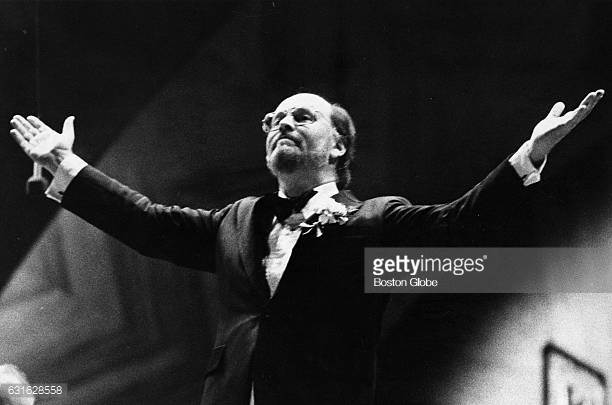-
Posts
4,765 -
Joined
-
Days Won
6
Posts posted by SteveMc
-
-
At H2 in the Lowes lobby if anyone wants to hang. On the couches.
-
H2 Kitchen and Bar is like within walking distance to the Bowl. Seems a well regarded spot, kitchen open until closing. Might be there on Friday night with a friend after the concert. Place is open until 12. Jameson's pub is just a stone's throw from there, open until 2.
Also a couple of karaoke spots around.
-
13 minutes ago, Jay said:
My plane is scheduled to land at LAX at 8pm tomorrow; I can't guarantee when I could arrive somewhere, but if people are going out for drinks after the concert, post what bar here and I'll try to attend!
I'll look up some nearby spots.
I'm down for heading out again Sunday night too.
-
On 31/08/2022 at 9:28 AM, Jay said:
SO!
Who from JWFan is attending the concerts this weekend!? Let's hear from you!I'll be at Sunday night's performance, in section K1!
Also... anyone hear there's a damn heatwave in LA? Oi!
I'll be at the Friday night concert!
Would love to meet up and chat.
-
- Popular Post
- Popular Post
we are still doing this?
-
- Popular Post
- Popular Post
Can't wait to hear the recording when it comes out!
- aj_vader, BB-8, MaxTheHouseelf and 3 others
-
 6
6
-
-
On 12/01/2022 at 11:06 PM, bruce marshall said:
Was she even known in.the Seventies?
In the late 70s she became one of the most famous people in the UK.
She indeed did not show up on America's radar until Hounds of Love in 1985.
-
On 10/01/2022 at 10:23 PM, GerateWohl said:
I never thought of Wow as a Bond song. But if you imagine it playing to Bond opening credits it actually work pretty well.
Bush was actually approached to sing the title track for Moonraker but passed on it, thinking she was not suited for the song.
Her sensuous late 70s style would have been perfect for where the franchise was stylistically at the time.
-
-
- Popular Post
- Popular Post
saw this today at the theater, decided to give it a go, being a casual admirer of Bernstein's WSS, despite not caring at all for the 1961 movie.
I was one of 3 there.
I understand why the movie is not doing well. 1. "regular" audiences are pretty dense. 2. this movie is not really geared towards musical fans and 3. it is too big and mainstream for the cineastes.
All that does not change the fact that this is probably Spielberg's best movie since Catch Me If You Can and just maybe even since Schindler's List. It may be a "movie no one wanted or needed" but he put his heart, soul, and genius into this one.
I'll go more at length elsewhere.
- bruce marshall, Tom Guernsey, Loert and 1 other
-
 4
4
-
- Popular Post
Tributes! (For Seiji!) (1999)
This is a mature occasional piece that is substantial in length, postmodern-accessible in character, and virtuosic in nature, to the point of being described by some as almost a concerto for orchestra. Written to commemorate Seiji Ozawa's 25th year with the Boston Symphony, it is one of Williams's most interesting concert work achievements.
It seems to blend some of his concert sensibilities with his 90s action style and a touch of 70s era grandeur. The work consists of sections that highlight different segments of the orchestra, in a celebration of the form and how it interacts with its surroundings, all culminating in more false endings than can be numbered!
Some program notes by Williams for the piece can be read here:
http://www.jw-collection.de/classical/seiji.htm
Here is a concert recording of the BSO performing it. I believe a CSO concert recording boot also exists, hopefully it surfaces on YT.
- GerateWohl, ragoz350, Martinland and 4 others
-
 6
6
-
 1
1
-

Something Wild (1986)
This Jonathan Demme film was and still is marketed as a sex comedy, but I think it is more Yuppie Noir, if that genre even exists. It's also quite fantastic. It seems to say that panache of the 70s, the free spirit of the 60s and the ideal of the 50s all come together to form an America and Americans that are actually, under the go and glow of the 80s, all brokenness and danger, and yet from the jagged pieces some unique and individual romance and domesticity can be formed.
The film certainly does start in a free, fast paced sexual style that recalls 60s and 70s movies in approach, but Demme snuffs out that candle about half way and lights the slower burning other end, which starts to burn pretty intensely come the third act, getting warmed up for his most celebrated effort in '92.
Melanie Griffith and Jeff Daniels were never better, both very effectively playing stock character types here who keep shedding layers until they reach the core of who they really are as people and as societal reflections. Ray Liotta brings menacing psychosis to a breakout antagonist turn. Score is full of alt needle drops that help contribute to the "other side of the 80s" feeling.
I saw the movie on Amazon Prime, which has the deteriorated and somewhat discolored theatrical cut. Apparently, Demme oversaw a Criterion restoration and dvd/blu-ray release, which is probably the way to go. Screencaps show it really brings out the cinematographic choices.
At any rate, a pretty good way to start 2022 moviewise.
3.5/4
edit: the original post midnight post had me say '93 instead of '92 and Jeff Bridges instead of Jeff Daniels.
- mrbellamy and Koray Savas
-
 2
2
-
Nice work everyone!
Hopefully my time management will be better next year, but grad school is grad school.
-
Seven For Luck (1998)
Well, it has been far, far too long. No promises this time, just getting back where I left off, with this most unique piece in Williams's concert output. A song cycle for soprano and orchestra with words by American poet Rita Dove, with the subject being seasons in a woman's life. It was premiered by the BSO, but apparently the only widely listenable version is a reduction for soprano and piano, which is up on YT.
The compositional language is postmodern, marked by angular lyricism, soloist writing that varies between operatic leaps and conversational expression, and a sense of drama, rhythm, motion and mood that seems to state, in a different way, a lot of the musical choices JW was making in his film work at the time.
It would be a treat to hear it in full form, the BSO and one would hope others evidently have it in their archives.
-
On 15/12/2021 at 8:05 AM, Disco Stu said:
I must confess I have never listened to a single note of Korngold's pre-Hollywood music.
The Piano Quintet in E is pretty nice.
tonight, I am discovering (or really paying attention to) the Elgar Cello Concerto.
and am in awe
Normally, I dislike Elgar, but this is a masterpiece.
-
Just now, GerateWohl said:
So, you just have to play your clarinet pieces just a little bit more enthusiastic.

oh, I can't play, but the expressive patch on musescore might fit the bill

- bruce marshall and GerateWohl
-
 1
1
-
 1
1
-
I was writing a Rondo for Piano, but it is far from prime time.
But I also have a short little something for clarinet in mind, so let's see if i can get it done in time.
EDIT: oh shoot, stupid me, just saw the rules, has to be a fanfare!

-
28 minutes ago, Naïve Old Fart said:
A Q. Q. for all you classical fans, out there:
How is Dvorak pronounced?
Is it Vorzhak, or D' Vorzhak?
I always hear it as Divorjacques (or Divorjauck)
-
I will present a piece
-
- Popular Post
Elegy For Cello And Orchestra (1997)
Williams wrote this piece out of tragedy, the death of the children of a violinist he was acquainted with. The work is classical in nature and structure, definitely lyrical and romantic in style, directly lifting a secondary theme from his film score Seven Years In Tibet and putting the heartfelt melody through development and soloist motion.
The overall effect is quite beautiful and more overt and immediate than perhaps all of Williams's concert works.
Originally, the work was written and performed for cello and piano. It feels quite different here, perhaps a bit more pained and focused than the richer orchestral version.
A couple of performances of this iteration are here:
SpoilerWilliams expanded the piece for full orchestra and recorded it with Yo Yo Ma in 2002, with this becoming the definitive version of the piece. It is remarkably lush, yet restrained.
This is one of Williams's works that will probably find itself permanently in the regular repertoire.
- Locrius, GerateWohl, BuzzLightyear and 1 other
-
 4
4
-
Trumpet Concerto (1996)

The Trumpet Concerto is one of Williams's most mature and fully realized concert works. There is a focus here in direction that makes it perhaps the most traditionally and straightforwardly structured of his concerti. At the same time, it furthers Williams's personal compositional goal of a kind of modern romanticism, blended here with a unique rhythmic sense and some echoes of Americana.
The concerto is in three movements.
The first, Maestoso, opens with a rousing interval based theme for the soloist, with the orchestra backing and helping build anticipation that leads to a resolute theme for the brass followed by the soloist going through rhythmic and quasi-lyrical motions, culminating in a more clearly lyrical if not quite melodic passage. This emphasis on shifting motion and direction characterizes the rest of the movement, as the motives and colors set forth in the introduction are explored thoroughly, yet efficiently. After a stirring orchestral high point, the soloist returns and, with the orchestra, sets a new pace, returns to the opening fanfare motive to introduce a cadenza with continued reference and development of the central motifs. Originally, the typical quiet JW first movement ending rounded out the movement, dissolving into the second, but the 2018 revision saw Williams change this in favor of the orchestra returning for a definite and forceful conclusion.
The second movement, marked Slowly, is full of lyrical mystery and contemplation. The opening is mysterious, with trumpet weaving through a unique orchestral and percussive backdrop. The principal theme is then introduced by the trumpet on a bed of strings, which proceeds to weave around the strings and woodwinds. A secondary thematic thread consists of a figure for the winds and a new lyrical theme for the trumpet, which leads to a return of the strings, first in pizzicato, then outright for a poignant passage where they restate the principal theme, which has a few shades of Rozsa to my ears in the melodic contour, with the overall treatment being unmistakably Williams. A faster section for trumpet and flute follows and leads to another restatement of the main theme and a coda with a quasi-cadenza element.
The third movement, Allegro-deciso, is the most freely formed of the three. Thematic motifs are brief musical bursts and orchestral interjections. Broadly, there are alternating fast and jagged clusters and longer lined interludes for structure. The rhythmic vitality, even in those interludes, is strong. Yet, there is seemingly an increasing hurried formality as the movement goes on, as if the music is realizing it has to be going and is politely making its exit, closing the door rather suddenly still.
The piece was written for Cleveland Orchestra principle trumpet Michael Sachs, although Sachs has not recorded the work despite having performed it on a number of occasions.
The first recording was with Ron Feldman conducting Arturo Sandoval and the London Symphony. This was the first version I heard and for many years I disliked the concerto because of it. I found Sandoval's tone too harsh and unchanging and Feldman's direction too jagged. The second movement interested me, (Sandoval does show adroitness here) but I felt it lacked something. Nevertheless, this interpretation is not afraid to let a certain raw power in the concerto run free.
SpoilerThe interpretation that made me realize the beauty and integrity of the concerto was that of Jouko Harjanne and the Finnish Radio Orchestra. Harjanne does not sacrifice too much of the concerto's power and unique elements, but he better brings out its neoromantic, heroic and even American nature amidst the interpretation's general cosmopolitan feel. There is a classical touch to the string approach, and an almost playful creativity for some of the passages for solo trumpet. I do not think this version was too much revised from the original released version, but it certainly feels like a fresh piece. I still revisit Harjanne's take regularly.
SpoilerFinally, for what in my estimation the definitive version and recording of the work. Williams conducting LA Phil principle Thomas Hooten and the Recording Arts Orchestra of LA. Williams revised the piece, adding color and cohesion in the orchestration and some structural changes, like the aforementioned resolved ending of the first movement which was first written for and heard in a performance of the movement with Hooten and the Marine Band.
The story of how this recording came to be is well documented here on JWFan, including by Hooten himself.
I can't remember exactly, but I think I contributed a little to the Kickstarter for the project, as many of us in this community did, so it feels good to have been a small part of doing this wonderful piece of American classical music justice.
Here is the recording:
SpoilerAnd here is an academic piece that goes into far more detail about the piece than I could ever dream of doing:
- Tom Guernsey and Bayesian
-
 1
1
-
 1
1
-
5 hours ago, apples said:
Noticed quite a few empty seats 🤔
I think that was due to covid capacity restrictions
-
A choir and roof raising performance of his Gloria.
Or maybe he'll rearrange Thomas and the King into an opera.





John Williams - Maestro of the Movies: Celebrating John Williams at 90 (Hollywood Bowl, Sept. 2.,3.,4, 2022)
in JOHN WILLIAMS
Posted
Any of y'all meeting up before tonight's concert? Not sure I can make a late night get together, but I don't want to miss out all chances to mingle.